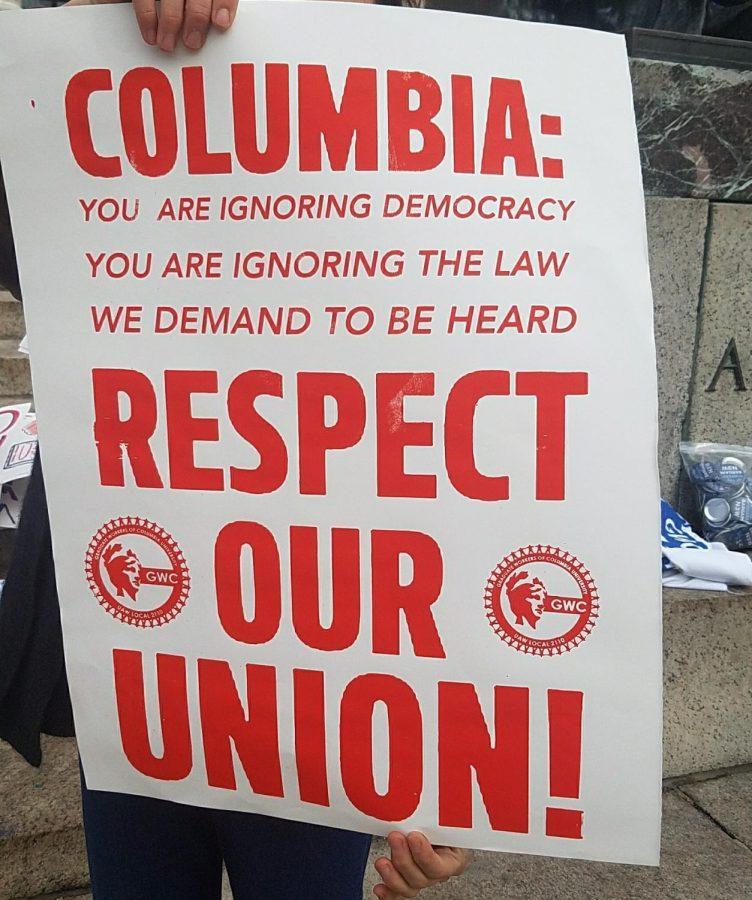NYU GSOC Stands Strong in Light of Recent Conflict at Columbia
NYU’s GSOC is showing support for Columbia University’s graduate student union.
February 2, 2018
For NYU’s Graduate Student Organizing Committee, last semester proved to be a tense one. After strain over the university’s lack of response to the Republican Tax Plan and its potential impacts on graduate students, GSOC joined graduate student unions from colleges across New York in protest.
On Tuesday, Columbia University announced that it would not bargain with its graduate students, Graduate Workers of Columbia, who voted to unionize more than a year ago. Their case is now headed for federal appeals court, bringing the issue of graduate student rights to the forefront of political discourse.
While GSOC is three years into its own contract with NYU, members of the union joined with GWC at Columbia to protest the Ivy League university’s refusal to negotiate.
“A union is not just about negotiating a contract,” PhD student and delegate to UAW Local 2110 — GSOC’s parent union — Nate Preus said. “That in fact we’re doing a lot more on campus, we’re a place for members to bring all kinds of concerns about the work that they do.”
Representing around 1,200 graduate students, NYU’s GSOC is currently the only graduate student union to be recognized by and hold a contract with a private university.
The union was officially recognized by the National Labor Relations Board in 2000 and negotiated its first contract with NYU in 2002.
Over the next 14 years, the graduate students tried to coalesce, facing scrutiny from different presidential administrations. But these uncertainties concluded in 2016 when the NLRB ruled in favor of working graduate students at private universities, giving them the federal right to unionize.
Under GSOC’s current contract, which was last negotiated in 2014, graduate school employees receive a 2.25 percent increase in pay each year as well as health insurance and other various workplace rights. The contract will be renegotiated in 2020.
Although the contract grants graduate students more benefits than before, NYU sometimes falls short in executing its promises. Graduate employees are able to file grievances with GSOC if they feel their contract is being violated and one of the most common issues reported by graduate workers is not getting pay or benefits on time.
“A couple of years ago we filed a workplace grievance on behalf of many members who were not receiving healthcare reimbursement for their health insurance because they started work somewhat late in the semester,” Preus said.
GSOC recently completed a settlement with NYU, which has now made a clearer commitment about how it will provide health insurance to graduate workers.
Preus explained that this was made possible by the organization of the union.
“That was not just a legal process,” he said. “That’s been something we’ve been agitating around and organizing our members around for some years now.”
Parental leave is another issue that GSOC is currently pursuing.
“Parental leave is something which NYU does not currently offer graduate workers really at all,” Preus said. “Despite the fact that you have this new state law in place.”
The state law claims that workers can have paid leave in family emergencies, such as a new child, caring for a loved one or a family member being called into active military duty.
In light of the disputes at Columbia and GSOC’s impending contract renegotiation, Preus emphasized that he wants to keep members active and making change in the NYU community.
Email Ehrland Hollingsworth at [email protected].
























































































































































